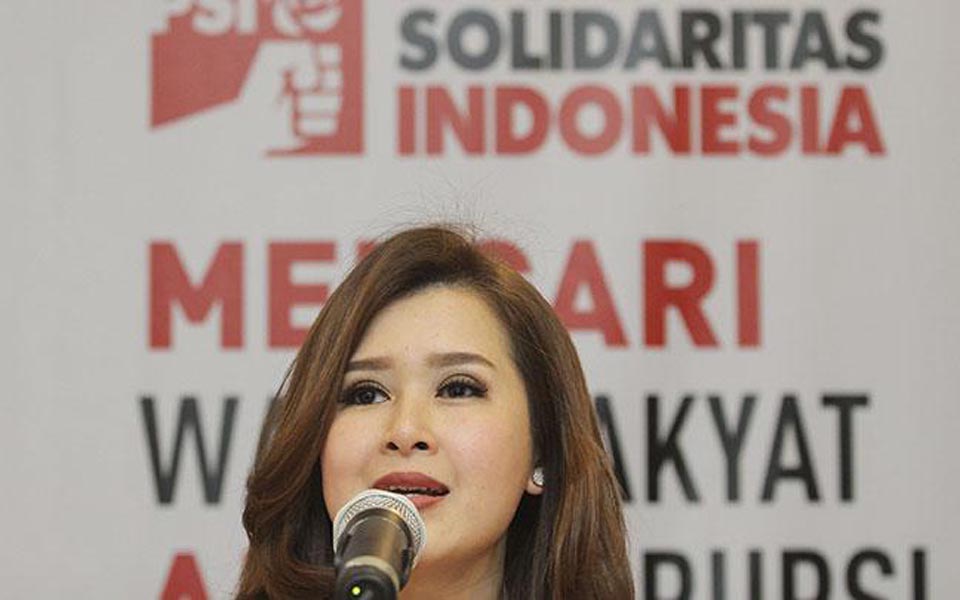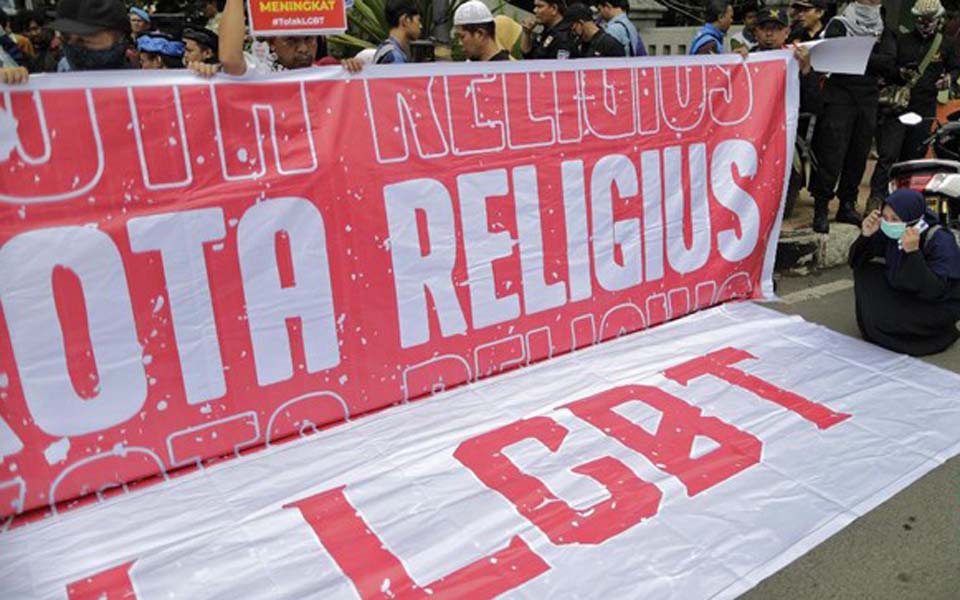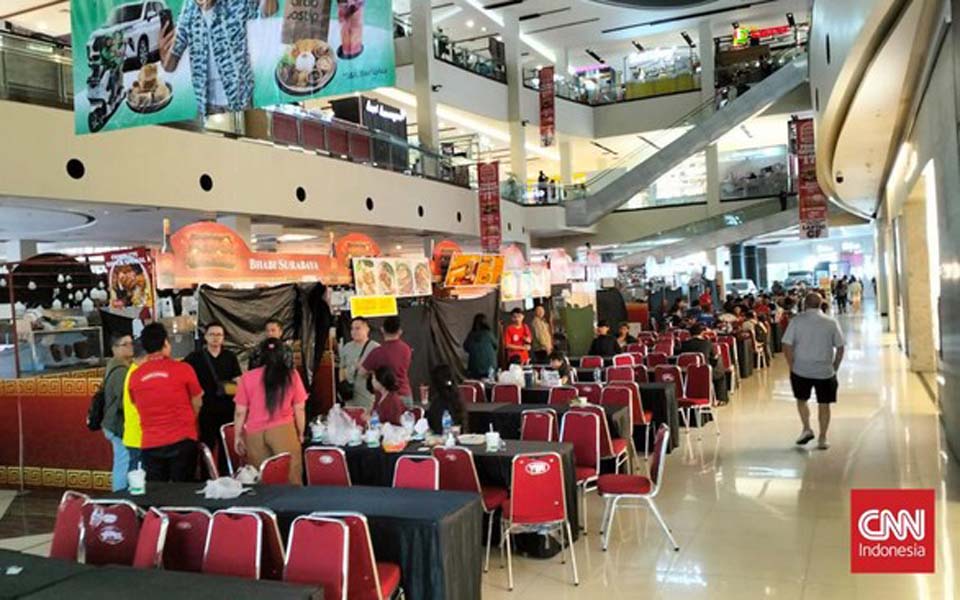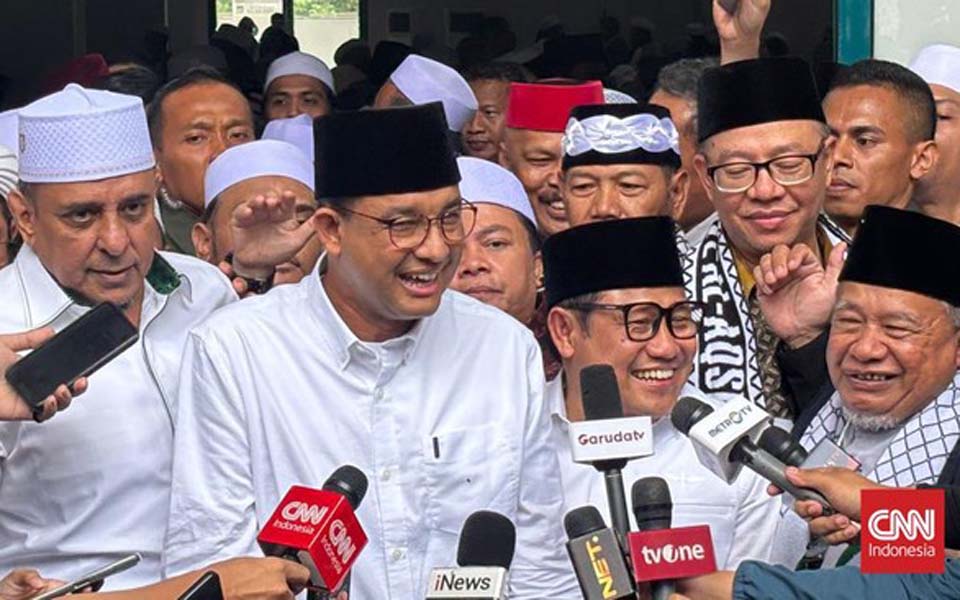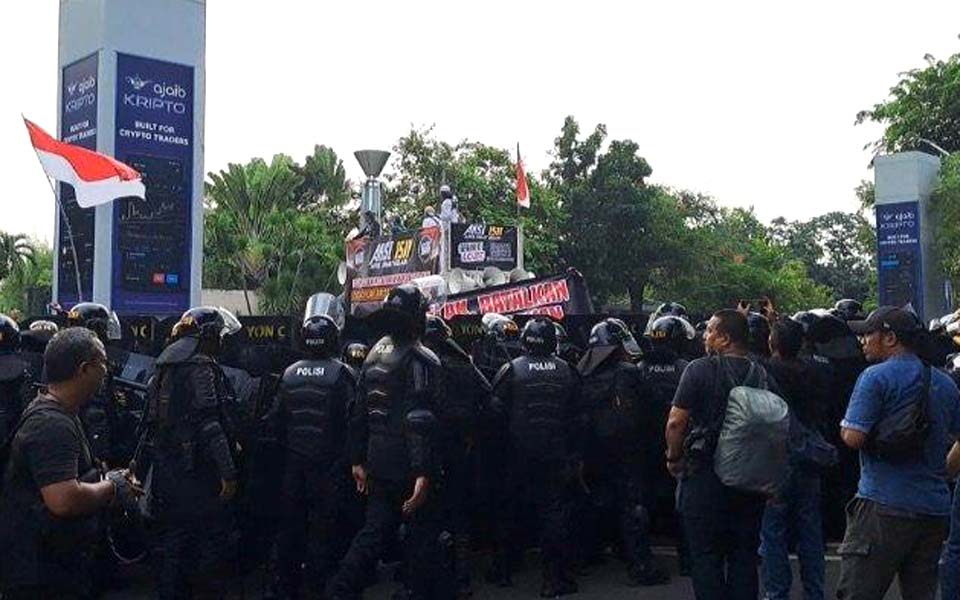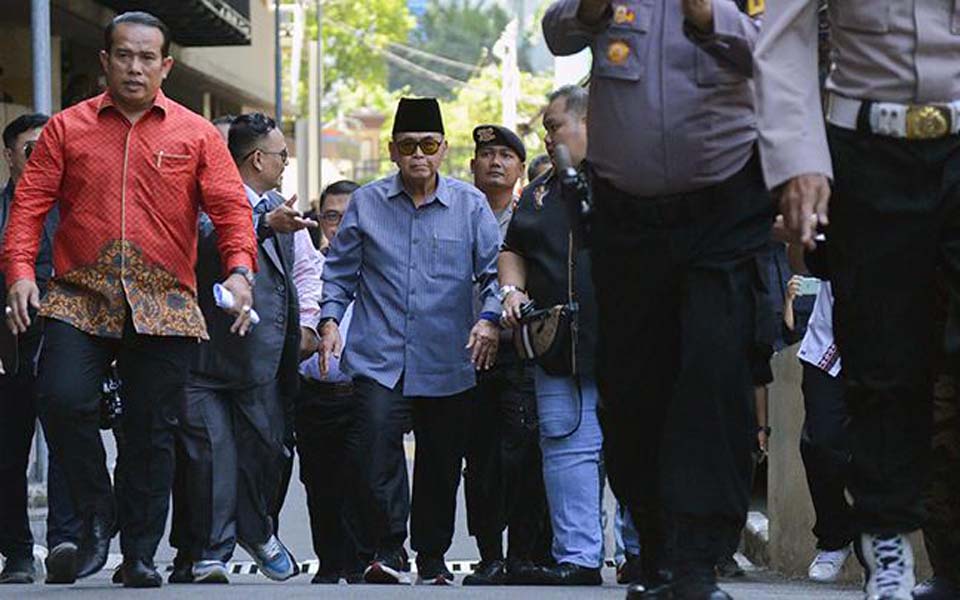Budiarti Utami Putri, Jakarta – Indonesian Solidarity Party (PSI) chairperson Grace Natalie has been reported to the national police headquarters criminal investigation bureau (Bareskrim Mabes Polri) for alleged blasphemy against religion.
The Fraternity of Indonesian Muslim Workers (PPMI) reported Natalie for alleged religious blasphemy because of a statement she made saying that her party will never support regional regulations which are based on religion such as perda (bylaws) which are based on syariah (Islamic law) or the Bible.
“The statement could be considered an expression of hostility, it also expressed hatred against religion”, said PPMI Secretary General Zulkhair at the Bareskrim Mabes Polri building in Gambir, Central Jakarta, on Friday November 16.
PSI General Secretary Raja Juli Antoni says that the charges don’t make any sense and that Natalie’s statement was related to their party’s commitment against corruption and intolerance.
Natalie earlier said that the PSI will never support any bylaws that are based on religion such as bylaws based on syariah or the Bible.
“The PSI will block the rise of injustice, discrimination and all forms of intolerance in this country. The PSI will never support perda [based on the] Bible or perda [based on] syariah. No longer will places of worship be allowed to be forcibly closed”, said Natalie during the commemoration of the fourth anniversary of the PSI at the Indonesia Convention Exhibition (ICE-BSD) in Tangerang, Banten on Sunday November 11.
Regulations based on religion have become widespread in Indonesia since reformasi – the political reform process that began in 1998 – in concert with the implementation of regional autonomy.
They have not only been in the form of bylaws, but also in the form of government circulars, instructions or decrees by regents and mayors.
An edition of Tempo Magazine on August 29, 2011 recorded at least 150 syariah based regulation. There are also a number of other bylaws such as Christian based bylaws, although they are few in number.
Out of Indonesia’s 34 provinces, the central government has only given special autonomy to the northern province of Aceh allowing it to form an administration based on Islamic law.
In the province known as the “Gateway to Mecca”, regulations based on syariah are realised in laws, gubernatorial decrees, court decisions, qanun (bylaws) and gubernatorial regulations and instructions.
The following is a list of regions aside from Aceh which have issued regulations based on syariah and various examples of their policies.
1. West Java
The majority of syariah based bylaws issued by the West Java government regulate immorality, prostitution, clothing for students and civil servants, zakat (alms), infaq (charity), sadaqah (voluntary charity) and prohibitions on the teachings and activities of the Ahmadiyah Islamic sect.
Issued by various different nomenclatures, a number of syariah based bylaws were issued by regional governments in West Java at the regency or municipal level.
The following are some examples of syariah based regulations:
- Indramayu Bylaw Number 7/1999 on Prostitution
- Bandung Regency Bylaw Number 9/2005 on Zakat, Infaq and Sodaqoh
- 2000 Garut Regent Circular on the wearing of jilbab (short veil) for female civil servants
- Tasikmalaya Bylaw Number 28/2000 on Eliminating Prostitution
2. West Sumatra
The first syariah based regulation in West Sumatra was issued by the Solok regency, which at the time was led by Regent Gamawan Fauzi – who later became Home Affairs Minister. Bylaw Number 10/2001 regulates the mandatory reading of the Koran for students and couples planning to marry. Fauzi said that the bylaw was proposed by local ulama (Islamic leaders] and social figures.
A year later Fauzi issued a bylaw on Muslim women’s clothing although he claimed that both bylaws were moderate and only applied to the Islamic community. The policy also included sanctions although according to the office of religion couples planning to marry that were unable to read the Koran would only have their marriage postponed.
After Solok, other cities jumped on the band wagon to issue syariah based bylaws. According to the Islamic mass organisation Nahdlatul Ulama (NU), by 2011 there were 25 syariah based bylaws in West Sumatra covering mandatory reading of the Koran, Muslim women’s clothing, zakat and prohibitions on maksiat (immoral behaviour, violating God’s law).
The following are several of these bylaws:
- West Sumatra Province Bylaw Number 11/2001 on the Eradication of Maksiat
- Bukittinggi Regency Bylaw Number 29/2004 on Zakat, Infaq and Sodaqoh
- Padang City Mayoral Instruction Number 451.422/Binsos III/2005 on Education and Mandatory Clothing for Muslim Men and Women
- South Pesisir Regency Bylaw Number 8/2004 on Reading and Writing the Koran
3. South Sulawesi
By 2011 South Sulawesi was one of the most zealous provinces in issuing syariah based bylaws. One such regulation was on obligatory zakat deposits amounting to 2.5 percent of people’s monthly income. The bylaw on zakat, infaq and sadaqah was initiated by Golkar Party politician Arief Sirajuddin who was the mayor of Makassar at the time.
Although it was aimed at the general public, it is largely civil servants that pay zakat and according to the Amil Zakat Agency 70 percent of civil servants do this.
The following are some of the syariah based bylaws in South Sulawesi:
- Maros Regency Bylaw Number 16/2005 on Muslim Clothing
- Maros Regency Bylaw Number 15/2005 on Koran Reading Literacy
- Makassar Municipal Bylaw Number 5/2006 on Zakat, Infaq and Sadaqah
- Bone Regency Circular Number 44/1857/VIII on the Prohibition on Hotels Accepting Unmarried or Unrelated Couples
- Bulukumba Village (Padang) Bylaw Number 5/2006 on Punishment by Flogging
4. Banten
Several syariah based bylaws have been issued by Banten province following its separation from West Java:
- Banten Provincial Bylaw Number 4/2004 on Zakat
- Serang Regency Bylaw Number 6/2002 on Zakat
- Pandeglang Regent Decree Number 09/2004 on Muslim Uniforms at Primary, Junior and Senior High School
- Pandeglang Regent Circular Number 25/2002 on the Wearing Islamic Women’s Clothing when Working
- Tangerang Bylaw Number 7/2005 on the Prohibition of the Distribution and Sale of Alcohol
- Tangerang Bylaw Number 8/2005 on the Prohibition of Prostitution
- Tangerang Mayoral Circular dated August 2008 on Entertainment Venue Closing Hours during Ramadan
In addition to the four regions above, a number of other provinces also have syariah based bylaws. They include the provinces of Riau, Bengkulu, South Sumatera, Lampung, Central Java, East Java, West Nusa Tenggara, East Kalimantan and Gorontalo.
In addition to these provinces, the city of Manokwari in West Papua once attempted to adopt a bylaw based on the Bible. Agreement on the plan however was unable to be reached and in its place Manokwari was designated as a “Kota Injil” (Bible City).
-- Andita Rahma, Tempo Magazine
[Slightly abridged translation by James Balowski. The original title of the report was Pelaporan Grace Natalie dan Polemik Perda Syariah di Indonesia.]





